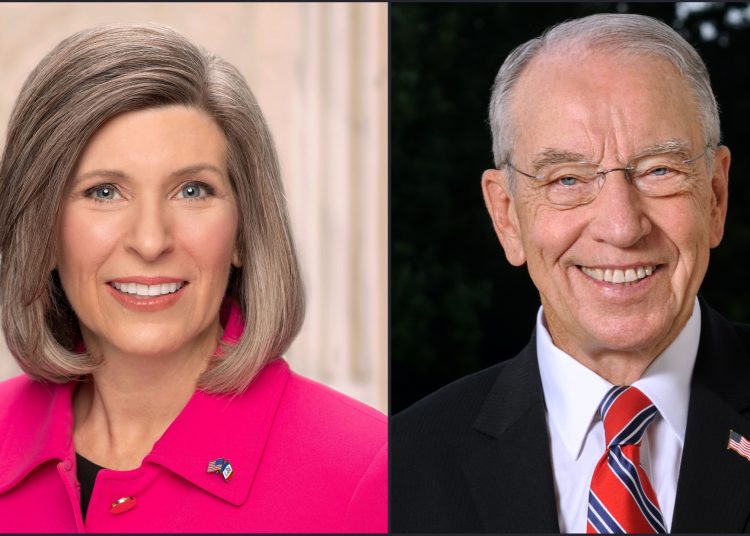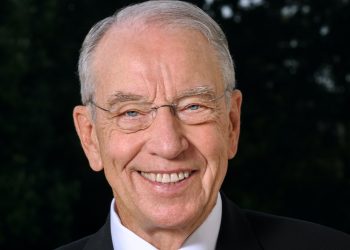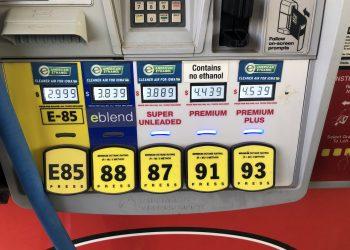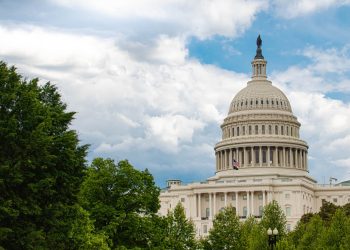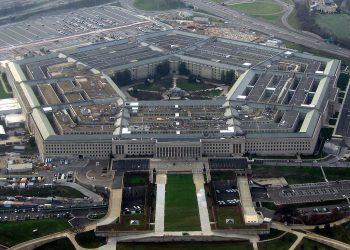DES MOINES, Iowa – U.S. Senator Chuck Grassley, R-Iowa, voted in favor of a $1.2 trillion infrastructure package on Tuesday while U.S. Senator Joni Ernst, R-Iowa, voted against it.
Grassley was one of 19 Republican senators who voted in favor of the bipartisan compromise bill that passed out of the Senate 69 to 30. The bill passed a cloture vote on Friday by a 68 to 29 vote.
The bill represents $550 billion in new spending over the next five years. That price tag includes:
- $110 billion for roads, bridges, and major projects
- $66 billion for passager and freight rail.
- $65 billion for rebuilding the electric grid
- $65 billion for expanding broadband access
- $39 billion to modernize and expand transit systems
- $7.5 billion to build a nationwide charging infrastructure for electric vehicles.
The Congressional Budget Office announced on Thursday that the Senate’s version of the infrastructure bill would increase projected deficits by $256 billion over the next ten years.
“Iowans have raised infrastructure concerns at nearly all of the 85 county meetings I’ve held so far this year, whether it be about roads and bridges, access to broadband or the locks and dams on the Mississippi River. Iowans rely on sound infrastructure to move our ag products and manufactured goods, as well as to connect with family, business partners and critical service providers. But like much of the country, Iowa’s aging infrastructure risks slowing economic growth and eroding daily comfort and convenience. This bipartisan bill fixes potholes, rebuilds bridges, upgrades water systems and brings broadband to rural corners of our state. Investing in Iowa’s infrastructure will pay dividends for decades to come,” Grassley said in a released statement.
“Like any compromise, this bill isn’t perfect and nobody got everything they wanted or likes everything in the bill, but this bipartisan package is a vast improvement over the House-passed infrastructure bill and a far cry from President Biden’s and Congressional Democrats’ partisan schemes to hike taxes and spend trillions on liberal pipedreams masqueraded as ‘human infrastructure.’ Our bipartisan package bundles several bills that have already won bipartisan action in the Senate, all without raising taxes on Iowa families. It’s proof that the Senate is fully capable of delivering on bipartisan policy when given the chance,” he added.
Grassley’s office said the bill would invest $4.2 billion for Iowa’s roads, $431 million to repair Iowa bridges. It also authorizes $227 million over the next five years for Iowa through the existing Clean Water State Revolving Fund program and the Drinking Water State Revolving Fund.
Speaker of House Nancy Pelosi, D-Calif., said she would not consider the Senate bill unless the Senate also passes a second bill with a price tag of $3.5 trillion that includes child care, climate change, education, and paid family and medical leave.
“It’s a shame my Democrat colleagues are still intent on following this bipartisan exercise with a partisan multi-trillion dollar reckless tax and spending spree, which I will oppose,” Grassley said.
Ernst said the bill added too much to the national debt.
“Congress and the American people were promised an infrastructure bill that was fully paid for, but that’s clearly not the case. This bill alone will add over $250 billion to the federal government’s nearly $30 trillion debt tab and includes bottomless boondoggles. While I certainly support improving America’s hard infrastructure—like our roads and bridges—I simply can’t support saddling more debt onto the shoulders of future generations of Iowans and opening the door for Bernie Sanders to ram through his multi-trillion dollar liberal tax-and-spending spree,” she told The Iowa Torch.
Ernst offered several amendments to the infrastructure bill intended to increase transparency and help pay for the package. One amendment required taxpayer-funded Energy Department and Transporation Department projects to include a price tag. Another amendment eliminates the Presidential Election Campaign Fund, which has $373 million in unused funds, and redirects the money to help pay for the infrastructure package.



